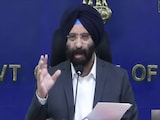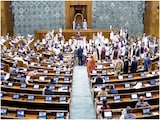At a time when "we are in the worst crisis in a century", it is not right to think about scaling down public spending to meet the larger fiscal goals as such a suicidal approach will only shrink the economy further, Kerala Finance Minister KN Balagopal has said and emphasised the need for "out-of-the-box" ideas to tide over the crisis.
The statement from the minister assumes significance as Kerala, the only communist-ruled state in the country now, is known for its sweeping public welfare measures that almost match the best-in-class models in the Scandinavian countries.
However, the southern state has been facing one of the worst fiscal crises for the past many years, which is reflected in its stagnating revenues, galloping expenditure and the resultant massive spike in public debt, which is over 36 per cent of the state GDP now. And the pandemic has further worsened the fiscal situation.
"This is not the right time to think of fiscal corrections, and there is no question of us cutting down on spending. Rather, this is the time to think out-of-the-box, because as a democratic government we've to ensure the livelihoods are protected, which demands that we continued to spent so that economic activity doesn't get stalled further and shrink an already-ravaged economy," Mr Balagopal told PTI in an interview.
He also warned that "we're in a time that's worse than the Great Depression, and my fear is that we may face more difficulties going forward".
Between FY15 and FY19, Kerala''s revenue plunged from 61 per cent to 55 per cent, according to the CAG report release in January.
According to the minister, the revenue decline accelerated after the roll out of GST as the state's overall tax collection dropped by a third since then. Non-tax revenue halved to Rs 6,000 crore and tax component of the state budget is down from Rs 95,000 crore to Rs 87,000-88,000 crore now.
As a result, public debt crossed 36 per cent of GSDP in FY21 but nothing can be done now to correct it as the times are so bad, the minister said.
The state's total debt burden increased to 70.21 per cent in the five years to FY19 -- from Rs 1,41,947 crore in FY15 to Rs 2,41,615 crore in FY19, the CAG report showed. As a result, per capita debt has also jumped from Rs 42,499 in FY15 to Rs 66,561 in FY19.
"When you are discussing fiscal corrections in the present scenario, you have to accept that the government has to ensure that social welfare measures are run properly which means paying for public good and services; ensure economic growth, and protecting the livelihoods among others, all at a time when your revenue is shrinking.
"So, the only way out is to think out-of-box," the minister said, adding that only a loose fiscal regime can help.
While admitting that there has been a constant stagnation in government revenues, Balagopal claimed that the situation is "not the state's own making as we have since 2018 been ravaged by one natural calamity after another and now the pandemic too".
Calling for some radical changes to the basic structure and design of GST as there are rampant tax leakages, the minister said since its roll out in July 2017, the state has lost a third of its revenue and it is time to undo "some of the damages to state's finances".
Also, the centre is not fully clearing the state's GST dues. While last month, the centre said it would pay Rs 4,523 crore of the GST dues, only less than Rs 4,200 crore has been paid. It's also to clear past dues of over Rs 3,600 crore.
"Given all these, our priorities are clear: we're in a public health emergency and are now preparing for a third wave, too. We've to make sure that every person is freely treated, fed and taken care of.
"Then, we must protect the livelihoods of all, especially the poor.
Since the pandemic, the state has been supplying free food kits to as many as 85 lakh families/ration cardholders, irrespective of their income designated-card category because in times of the pandemic, having just cash will not help. In short, we've ensured that nobody goes to bed hungry since the pandemic began," he said.
Kerala is a home to a large number of public pensioners, totalling over 54 lakh apart from more than 10.5 lakh government pensioners, the minister said pointing out the last salary increase alone needs Rs 14,500 crore of additional budgetary allocation.
"Given this, there's no question of shrinking the economy by cutting down investment or borrowings as that will only further aggravate the problem. Tell me which expenditure can be cut? This is not the time for any such measures. We can't tide over this crisis by shrinking the economy but only by increasing economic activities.
"In fact, we've increased our capex on health and education--the human capital. I wonder why most economists do not consider investing in human capital as productive investment. I for one consider the biggest investment that Kerala has made all these years is in human capital," Balagopal said.
He has also demanded that the centre allow the states to continue to borrow 5 per cent of GSDP, as it did last year, without any conditions. "I cannot draw up a fiscal road map now because this is not the right time to contain debt. What is needed is for the centre to devise some special and innovative measures to allow the states to spend/ borrow more, so that more jobs are created in times like this and the needy is taken care of," he concluded.















